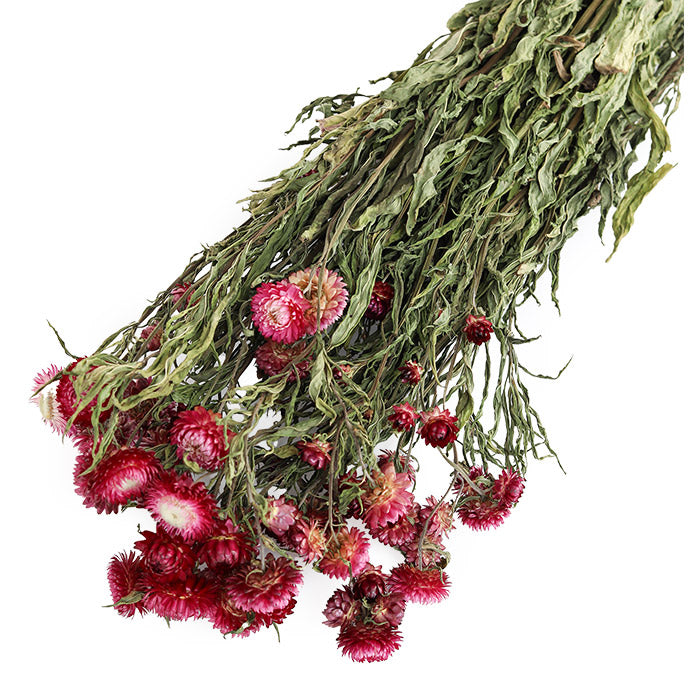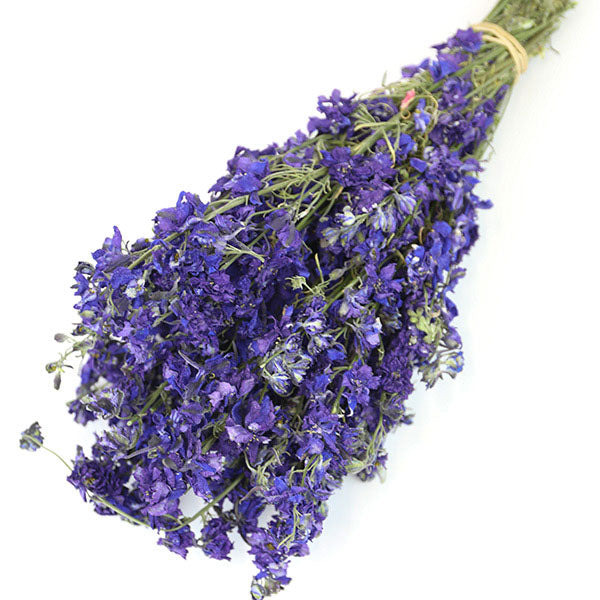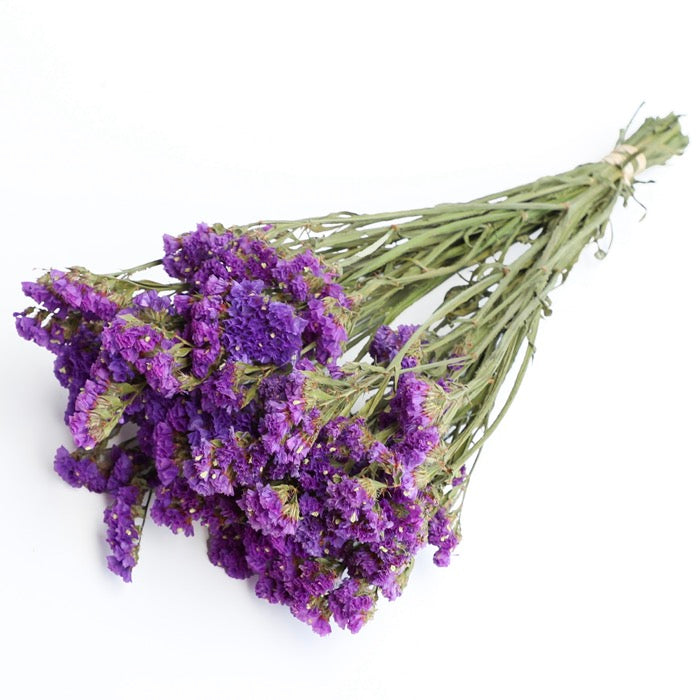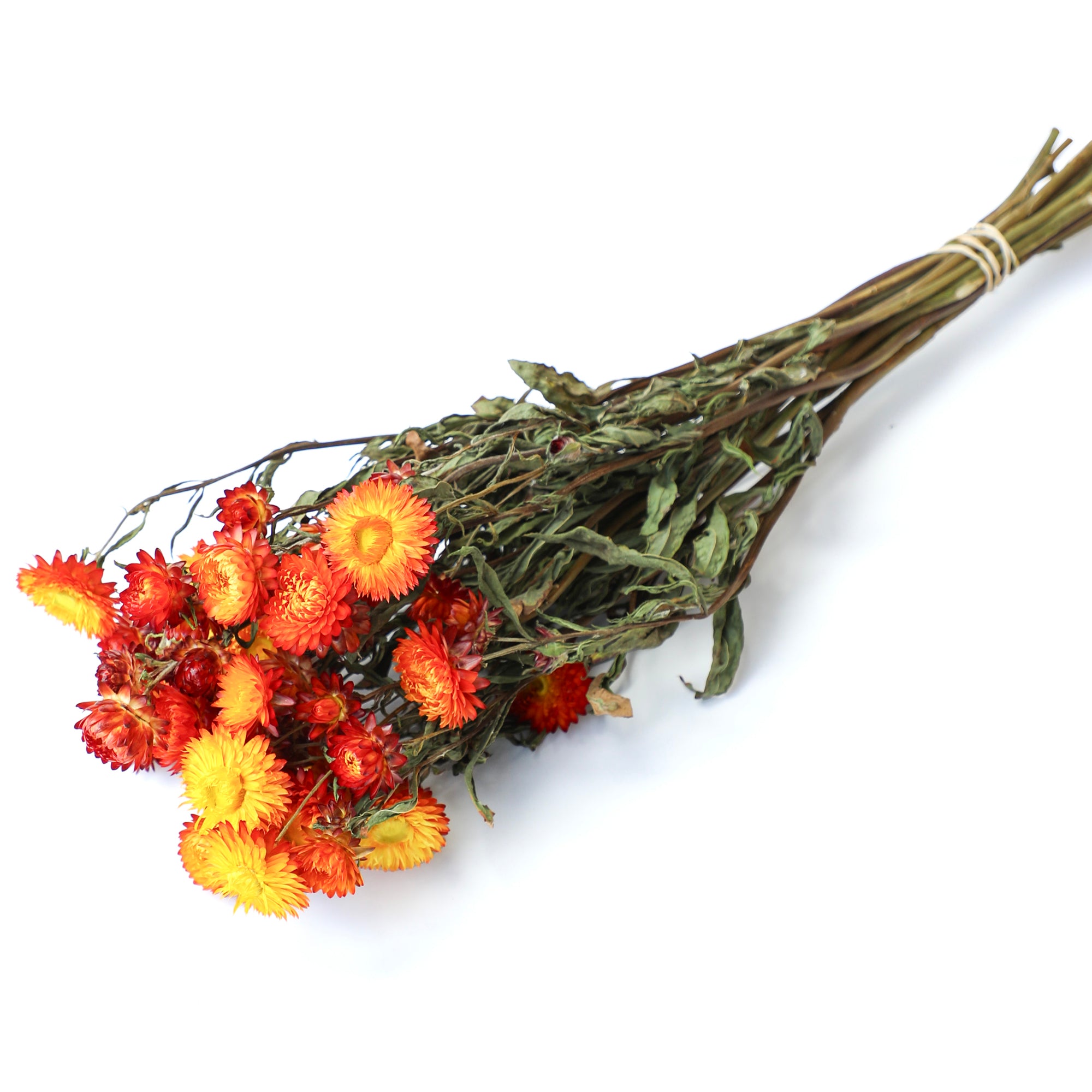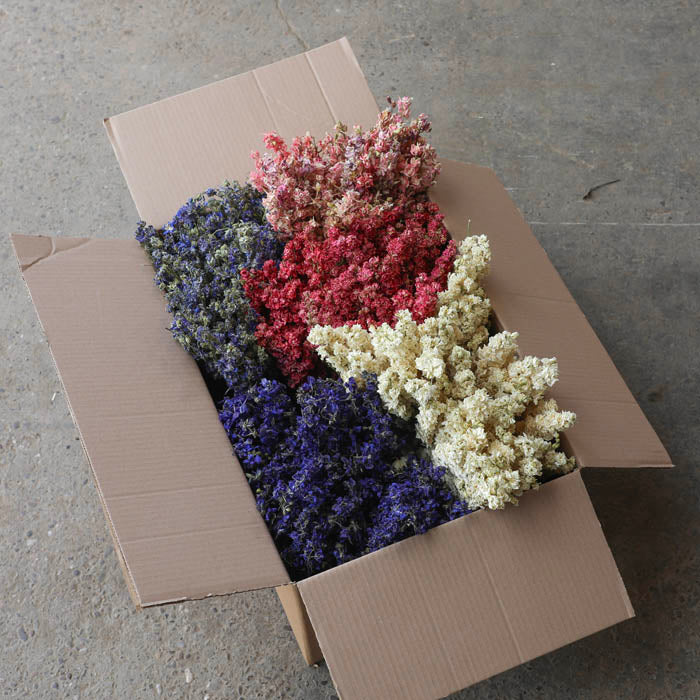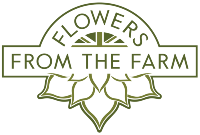As 4th generation farmers, we are committed to being as sustainable as possible for the next generation. We are not perfect, and we have many more projects we are currently working on in the background, but here’s what we’ve achieved already on our sustainability journey.
Diversification
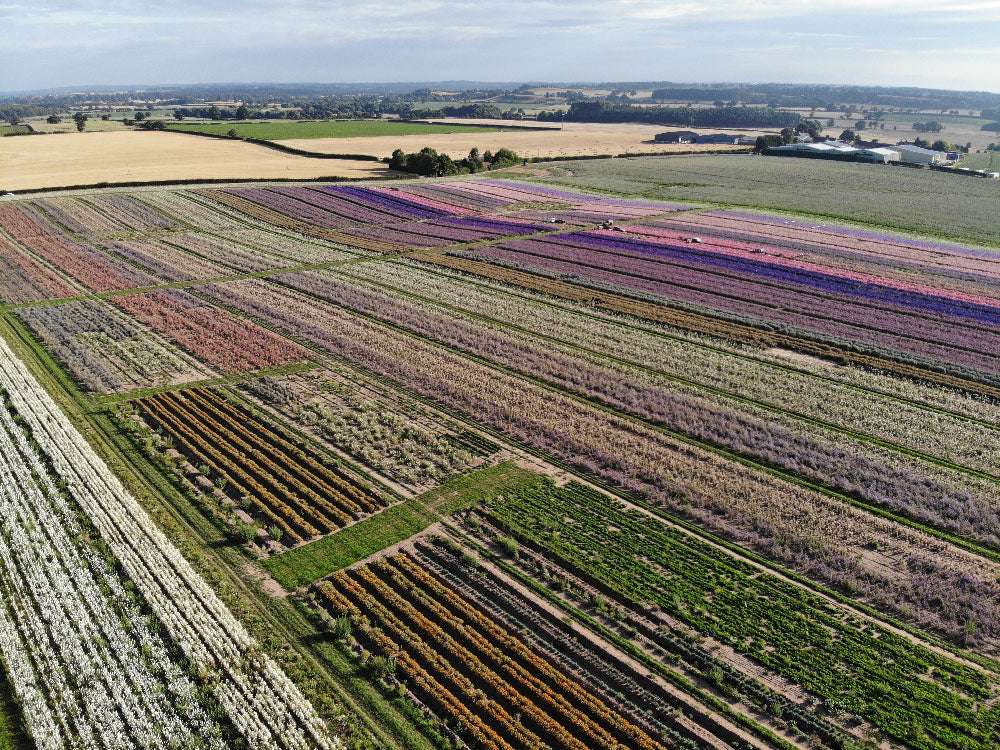
Lynn South Farm dates back to 1948 when the Bubb family farmed potatoes, sugar beet, cereals and a dairy herd. During the 80’s the farm diversified into growing flowers for the dried floral market to wholesale customers around the world. Since this innovative diversification, the farm has gone from strength to strength into terms of it’s sustainable approach to producing British grown flowers.
Our Flower Fields
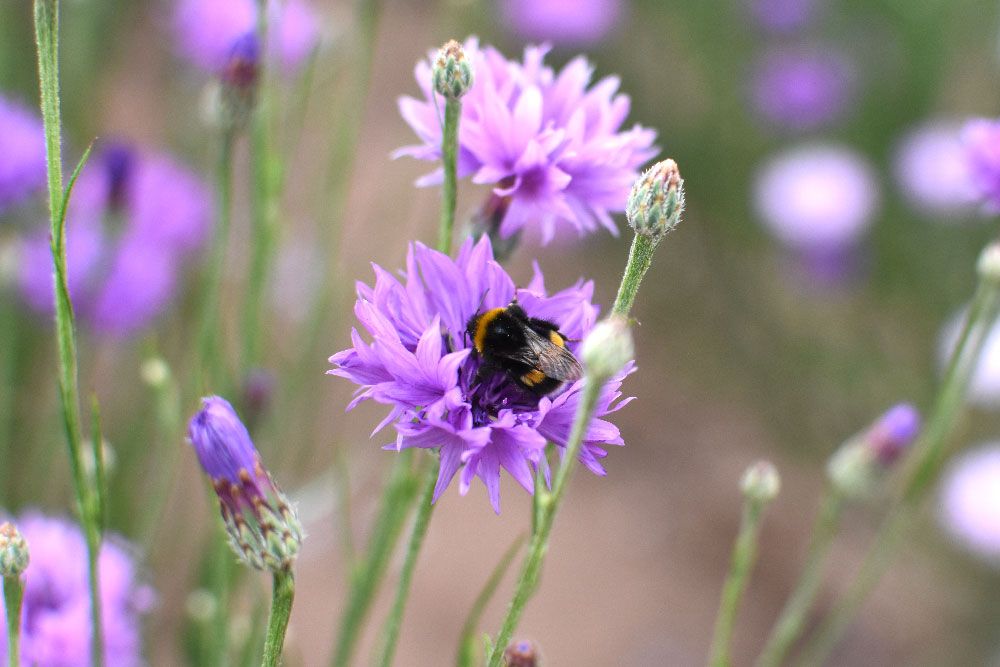
We’re proud to be British growers helping wildlife thrive in our area. As flower growers, our flower fields act as a haven for wildlife. With regular sightings of various insects, birds, hares, rabbits and on rare occasion, deer. Not only do the flowers provide a safe retreat for wildlife, they provide food and pollen for insects, feeding the hierarchy of animals as a result.
Products
We celebrate our British grown products. The majority of our products are grown, harvested and dried onsite, and so they carry a very low carbon footprint in comparison to non-UK grown dried flowers and petals.
Our collection of dried flowers require very little maintenance as their moisture has been removed and they last much longer than any fresh flowers. Some of our dried flowers can last years when stored away from heat, moisture and prolonged direct light.
We have been growing flowers for dried petal production for many years now and are on a mission to rid the world of paper confetti, to replace it with petals. Dried petals are naturally biodegradable and require less resources and processing than paper confetti. Paper is manufactured from mature trees, which requires milling and heavy processing, whereas our dried petals are grown in a single British summer, picked by hand to ensure the best quality, dried onsite and ready to be used within days of being dried.
Packaging
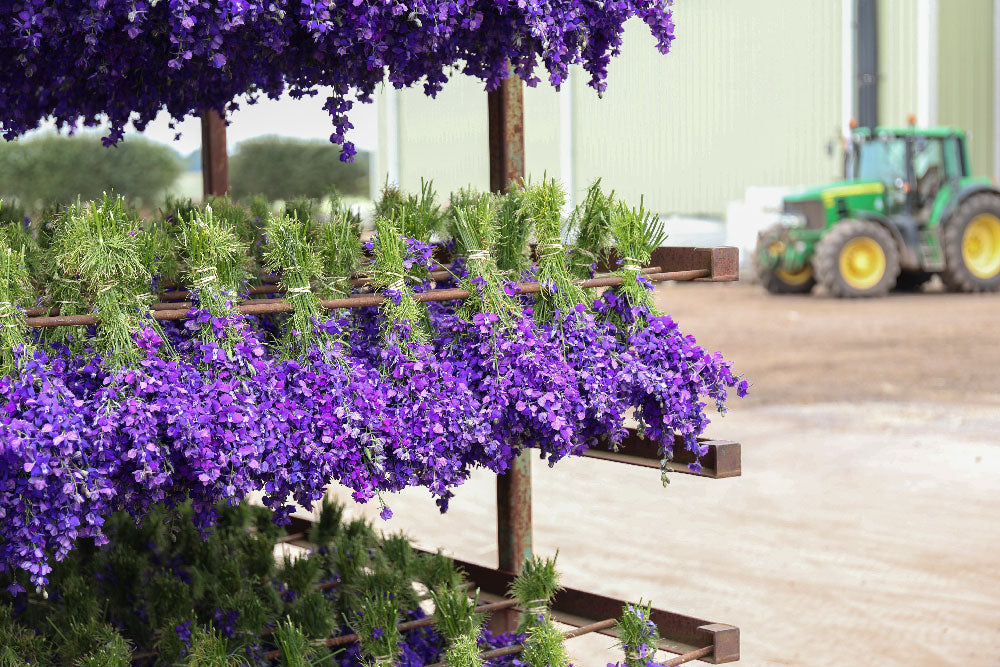
Our dispatch boxes are made from 80% recycled sources, and we seal our boxes with eco-friendly paper tape.
We also recycle our own cardboard using a void fill machine to use to safely pack out your delicate orders.
We’re still making improvements in terms of our product packaging and planning to replace our petal packaging in the coming months for a more environmentally friendly material.

Training and Development
We’re committed to improving our sustainability journey through training and development of our dedicated team. We’ve taken part in the Small Business Britain Sustainability Basic Programme in partnership with Oxford Brookes Business School to help us on our journey.
Operations
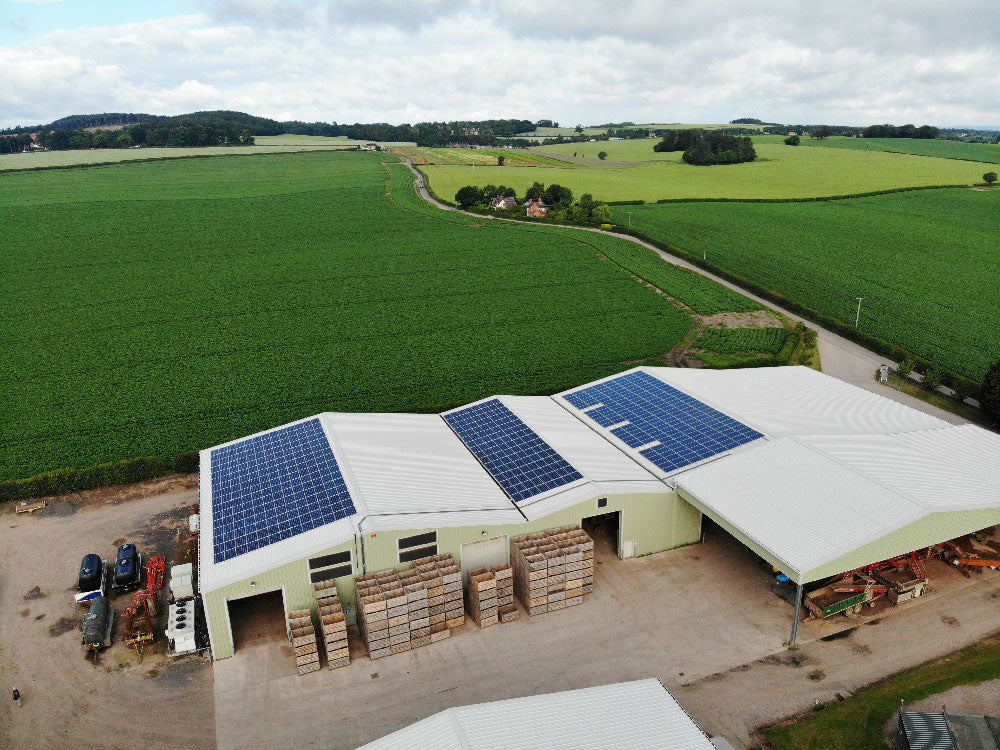
We utilise energy from the sun, to power the farm. We’ve installed several large solar panels on the roofs of our storage sheds. As certain times of the year we put it back in the grid, and during our busy time when required, we buy extra units.
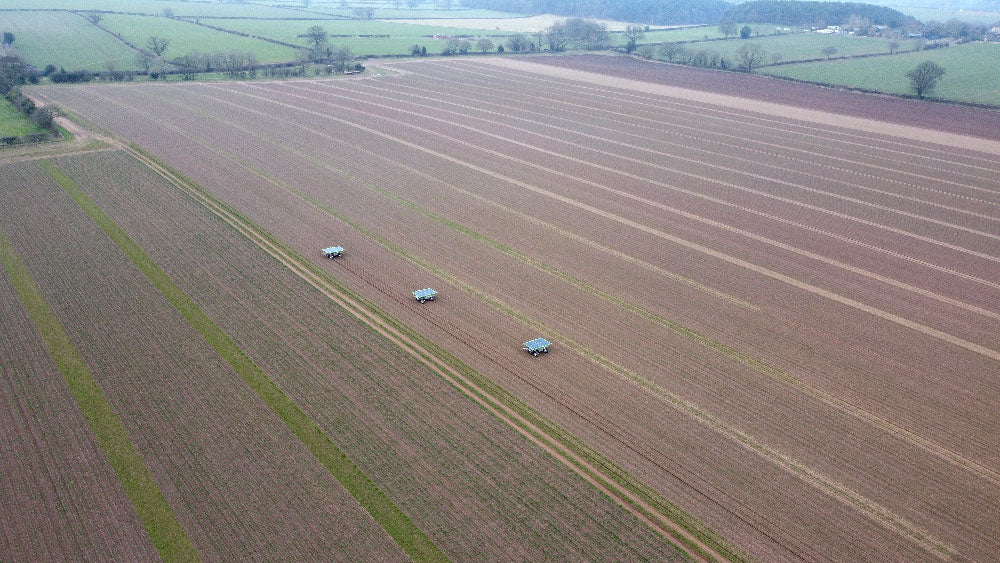
Back in 2022 we embraced the future of farming with a revolutionary solar powered robot that plants our flower seeds and weeds around them. It was a world first for our delphiniums! Since this pivotal point in the farm’s history, we’ve added two more robots to the fleet. Not only does this innovative approach save hours of hand weeding, it reduces our CO2 emissions and reduces the risk of soil compaction.
Responsibility
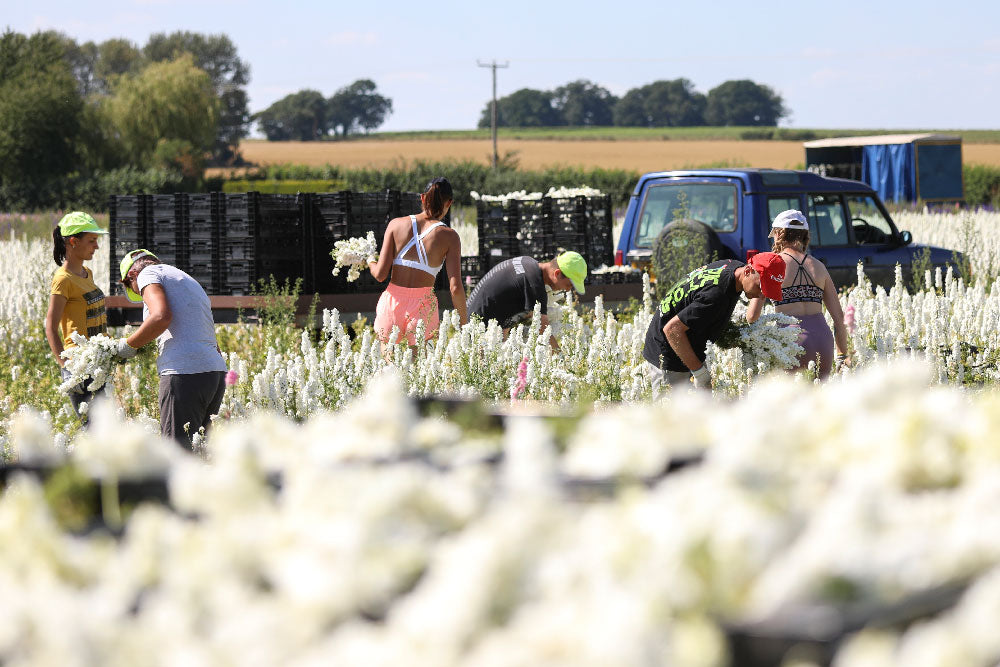
Working on a British flower farm sounds idyllic, but it’s hard work and takes dedication and a willingness to be outside in rain or shine. Our team work incredibly hard, especially so during the summer time, as it’s our peak harvest time and our busiest sales period. We believe in paying our team fairly and treating them with respect.
Farming Principles
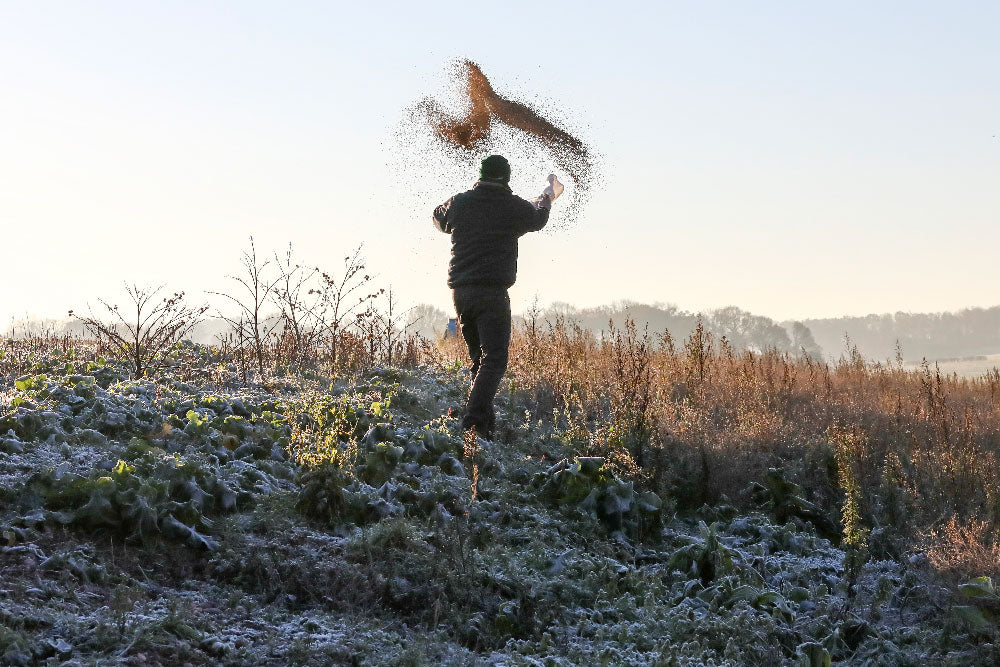
We’re proud to be a British farm practising regenerative farming techniques to ensure we all have a bright future. We’ve adopted several approaches to work toward a regenerative agriculture system including the use of cover crops, tree planting, hedge laying, creating reed beds for water run-off, effective field rotations, providing food for birds during the winter months, and beneficials by improving biodiversity and creating richer environments through stewardship around the fields, alongside working closely with our agronomist.


